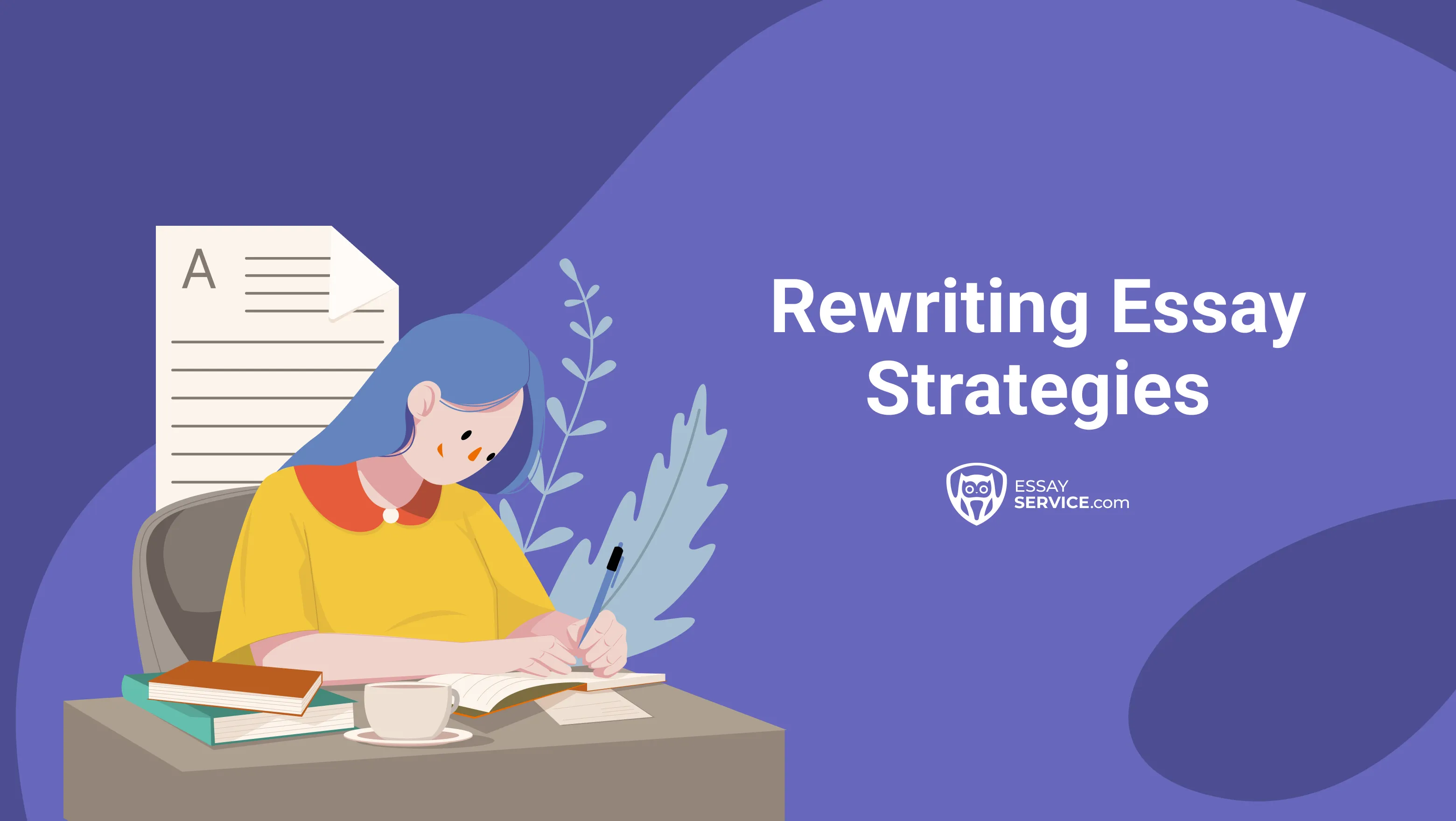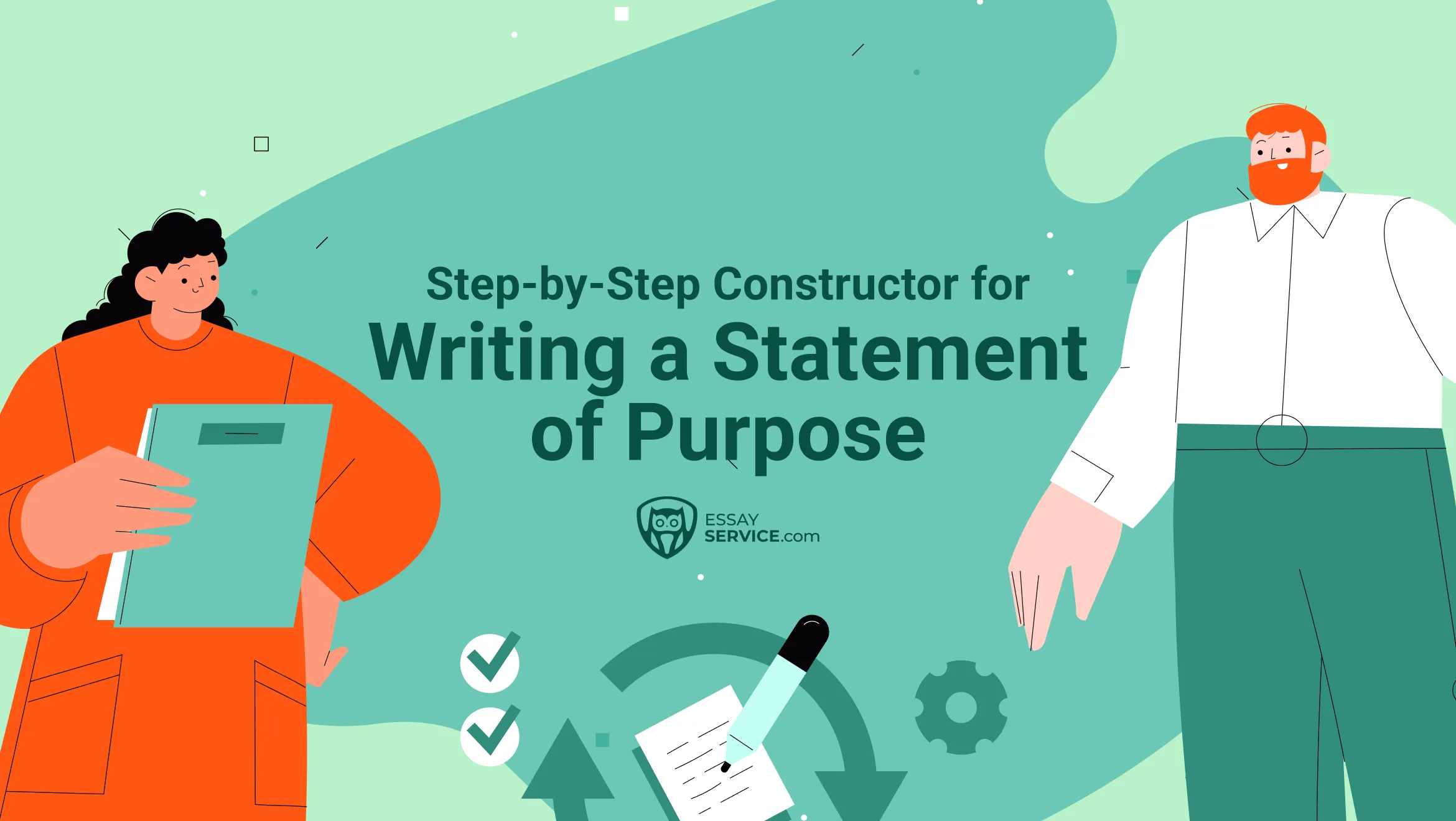You’ve built your argument, backed it up with evidence, and carefully shaped every paragraph. But now you’re staring at the blank space after your last body paragraph, wondering, how do you end this thing without ruining everything that came before?
Here’s how to write a conclusion that feels like a full stop:
- Restate the thesis
- Review your main points
- Show why your argument matters
- Add perspective or a final insight
- End on a strong closing sentence
In this article, we’ll break down an essay conclusion in a way that reinforces your ideas and leaves a lasting impression, eventually tying everything back to your central argument.
And if writing has you stuck, don’t overwhelm yourself. EssayService can help you with an exceptional writer team whenever you need it most!

How to Conclude an Essay Step-by-Step
A strong essay deserves a strong ending. You’ve made your point and supported it, now it’s time to close things out. A good conclusion ties it all together and gives your reader something to take with them. Here’s how to write a conclusion for an essay that feels complete:
- Restate your thesis
- Review your main points
- Show why your argument matters
- Add perspective
- Consider the clincher
These steps help you end your essay with intention, not just out of obligation. In the next sections, we’ll walk you through each one with examples you can really use.
Restate Your Thesis to End Your Essay Clearly
The first step in ending your essay is to bring your thesis statement back into focus, but not by copying and pasting it. Rephrasing it in a new way shows you’ve actually developed your ideas and followed through on your argument.
Let’s say your original thesis was: ‘Climate change is accelerating due to human activity, and urgent action is needed to prevent long-term damage.’
A restated version could be: ‘Human-driven climate change continues to speed up, and responding now is the only way to limit its lasting impact.’
End your essay by restating your thesis in the conclusion and reminding readers what your entire essay was built around, without sounding like you’re repeating yourself.
Review Your Main Points Without Repeating Everything
After restating your thesis, quickly touch on the key points you covered. This part isn’t about listing each paragraph. It’s about pulling the threads together to show how your ideas connect.
For example: 'From rising global temperatures to the role of fossil fuels and the urgency of international agreements, it’s clear that climate change is being driven by human choices and demands a global response.'
You’re not rehashing everything. Instead, you’re showing how the body of your essay worked together to support your thesis. When done right, this section helps your reader walk away with a clear sense of understanding.
Show Why It’s Important
This is where you answer the quiet question in every reader’s mind: So what? A strong end of an essay explains why everything you’ve said matters.
Try something like: 'As the effects of climate change grow more visible, understanding the causes and solutions becomes essential for public policy, for future generations, and the survival of vulnerable communities worldwide.'
Connect your topic to real-life consequences, broader debates, or future concerns. That final paragraph should offer something to think about after the essay ends.
Add Perspective Without Going Off Track
Offering a final insight gives your reader a sense that the topic goes beyond what was covered in your body paragraphs. You don’t want to introduce new evidence here, but you can widen the lens just a little.
For instance: 'While governments play a big role in climate policy, real progress may come from everyday decisions: what we eat, how we travel, and what we demand from leaders.'
This step can be a good place to suggest an area for further study, hint at an ongoing conversation, or leave the door open for more discussion.
Consider the Clincher at the End of the Essay
The very end of the essay, the last sentence of your conclusion, matters more than people think. It’s your final shot at leaving an impression, so it needs to feel deliberate. This is your clincher, the thought that lingers.
A good clincher might circle back to your opening, strike an emotional note, or pose a question that sticks:
'If we already know what’s causing climate change, what’s really stopping us from acting?'
What Doesn’t Belong in a Conclusion?
A conclusion isn’t the place for new arguments, unrelated facts, or sudden changes in tone. Keep it focused, clean, and relevant to everything that came before. If it wouldn’t fit in your introduction, it probably doesn’t belong in your final paragraph either.
Avoid Adding New Evidence
When you're concluding the essay, leave all new information out. This isn’t the time to introduce fresh research and stats. That can confuse your reader or weaken your ending.
- Stick with what you’ve already discussed
- Reinforce, don’t expand
- Save extra points for future writing or study
Skip the Obvious 'Concluding Phrases'
Concluding the essay doesn’t mean you have to say 'in conclusion' or 'to sum up.' These phrases often feel forced or repetitive.
- End with meaning
- Let your ideas guide the close
- Trust that readers can tell it’s the end
Don’t Undercut Your Own Argument
A weak ending can undo strong writing. Avoid statements like 'this might not be right' or 'there could be other views.' That sounds like backing down.
- Stand by your thesis
- Be confident
- Leave readers with clarity
Final Thoughts
A strong conclusion brings everything full circle. This is your last chance to remind the reader why your argument is important. Even the strongest essay can feel incomplete without a meaningful ending.
- Say your thesis again, but in a new way
- Tie your main points together naturally
- Show why your argument matters now
- Leave your reader with something to think about
- Don’t introduce new information
- End with purpose, not just because you reached the word count
Still not sure how to end your essay in a way that works? EssayService can help you shape your final paragraph or your entire draft with our college essay writing service!
Frequently Asked Questions
How Do You Write a Good Conclusion for an Essay?
To write a good conclusion for an essay, bring back your thesis, highlight your key points, and close with an impact.
What Is a Good Concluding Word for an Essay?
Use words like ‘Ultimately’ or ‘Clearly' if they fit, but you don’t need them to write a strong ending.
What Is an Example of a Good Conclusion?
An example of a good conclusion could look like the following: ‘Real action on climate change won’t solve everything overnight, but it’s the only way forward, and that choice starts with us.’
.png)
Jaroslav specializes in helping students unlock their creative side and let it shine. Armed with his Bachelor’s degree in creative writing, he imparts his advice on making communication effective and engaging.
University of North Carolina at Pembroke. (n.d.). Ways to conclude an essay. https://www.uncp.edu/sites/default/files/2022-02/%5BDone%5D%20Ways%20to%20Conclude%20an%20Essay%20%281%29_0.pdf
New posts to your inbox
Your submission has been received!



